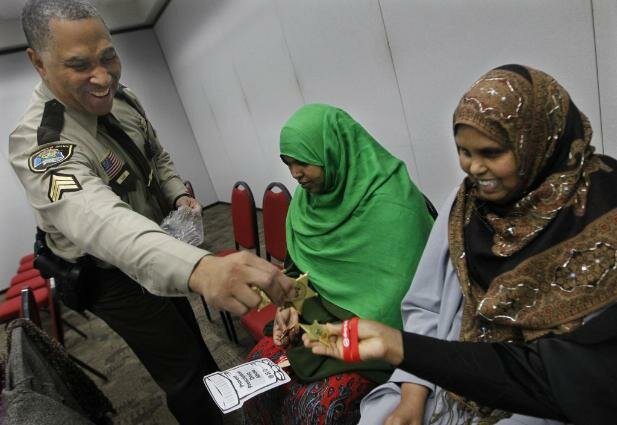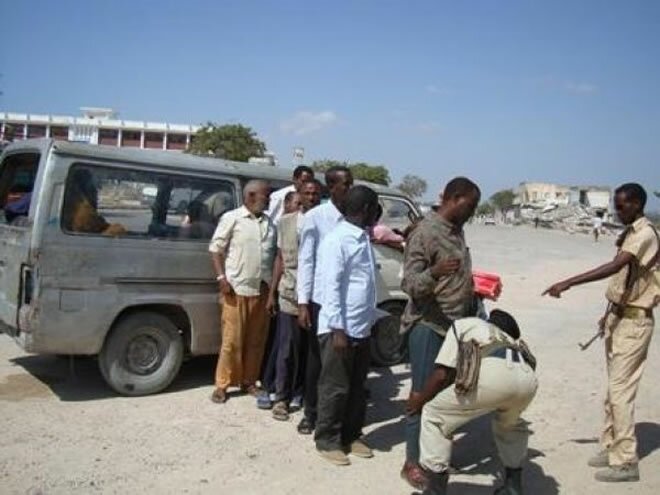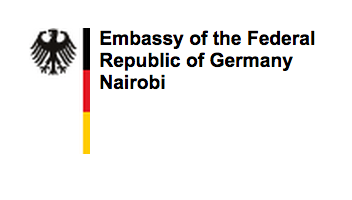Continued: Hennepin County Sheriff’s sergeant goes all-out on outreach
 Sgt. Derwin Ellis knows how to break the ice.
Sgt. Derwin Ellis knows how to break the ice.
Before a meeting with a Somali women’s group Tuesday in Eden Prairie, Ellis handed out fans, plastic junior deputy badges and wristbands to members, introducing himself as they waited for some latecomers.
Cultural differences were clear as Ellis struggled to pronounce Farhio, the name of a woman who was running late. Some of the women repeated the name for him a few times until he successfully pronounced it. “I start language classes Saturday,” he said.
For his efforts as outreach liaison for the Hennepin County Sheriff’s Office — and his extra effort — Ellis recently won the county’s Supervisor of the Year award, which is given by the Minnesota Sheriff’s Association.
Ellis attends community meetings, events, celebrations, funerals and vigils. He familiarizes people with the Sheriff’s Office, bolstering a partnership between police and the Somali, Latino, American Indian, black and Asian-American communities.
Ellis organizes one-day and 11-week Citizens Academies, which include tours of the jail, to teach people about law enforcement and public safety.
“Personally, I like the fact that I can have a direct impact on community members,” Ellis said.
Ellis, 51, grew up in Ohio and spent 21 years in the military, including three months in Saudi Arabia during Desert Storm. He’s been with the Sheriff’s Office for more than 10 years and took the liaison job 2 1/2 years ago. “I’ve been accused of being pretty passionate about whatever job I do,” he said.
Abdirizak Bihi, director of the Somali Education and Social Advocacy Center in Minneapolis, said Ellis gives a human face to police.
“We come from a culture where law enforcement is brutal and bad and the government is the first thing to fear,” Bihi said. “They brought that mentality here and fear anyone in uniform.”
He speaks the language
Ellis has made connections within the black community and focused on getting a stronger foothold with the Somali community this past year. He is working on making inroads with the Latino, American Indian and Asian-American communities.
He said he will start learning Somali on Saturday. He already is well-versed in American Sign Language and speaks conversational Spanish, German, French and Korean, thanks in part to his military background.
Ellis reaches out to groups, individuals, and community and religious leaders through many channels — radio, e-mail, fliers and door knocking — to organize the Citizens Academies and informational meetings.
Tuesday night, he met with members of the Women of Africa Resource and Development Association at the Eden Prairie City Center to explain how the Sheriff’s Office works, but more importantly, he said, to meet the women.
“It’s not so much what we are doing there for that snippet of time,” Ellis said. “It’s trying to establish an introduction and build the trust.”
Eleven women attended the meeting led by Ellis and Maj. Tracey Martin, who is part of Ellis’ support network.
The meeting lasted nearly two hours as Ellis and Martin said a couple of sentences at a time, then Nadifa Osman, the group’s leader, translated the information into Somali. The women often interrupted with questions, sometimes speaking in English, other times using Osman to interpret.
Osman explained unfamiliar terms, like arrest warrants. “K-9 units” required some clarification, she said, because the women first thought of “K’naan,” a popular Somali rapper.
Ellis explained jail procedures. For example, a Somali woman who is jailed can request a female officer to search her, and the jail can make accommodations for religious practices, like prayer and diet during Ramadan.
Osman said the law enforcement system “didn’t make any sense to them,” and the women were eager to learn.
It is important for Somali mothers and their families to know that most law enforcement officers are fair and are there to help them, Osman said.
For instance, many of the women did not understand the Sheriff’s Office’s role in evictions. Ellis explained that the officers get involved late in the process and are there to look out for the evicted person and their belongings, not to throw them out of their home.
Overcoming barriers
She said working with the Sheriff’s Office will help close language barriers and cultural differences between police and the Somali community.
“We are a team,” Osman said to Ellis and Martin after the meeting. “Together we can make a difference.”
Bihi said he has not met Ellis personally, but he has seen him around, handing out educational materials at community events and sitting on a curb just talking to young people.
He said that Ellis is known and well-liked “not only for the work he does, but the personality he brings along with it.”
Bihi said some young Somali men harbor prejudices about police, and making a connection with them is crucial. “To remove the misunderstanding is key,” he said. “[Ellis'] job is something that needs to be repeated and created more. We need more people like him.”
___
Star Tribune.
Comments
comments
 Calendar
Calendar






































